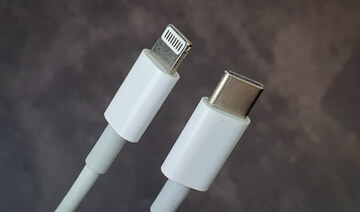In a significant move towards improving user experience and reducing electronic waste, Saudi Arabia has introduced a unified charging standard for electronic devices, mandating USB Type-C ports. This initiative, which came into effect on January 1st, is the result of a collaborative effort between the Communications and Space Technology Commission (CST) and the Saudi Standards, Metrology, and Quality Organization (SASO).
The Rationale Behind the Initiative
The decision to adopt a unified charging standard was taken with the aim of streamlining charging and data transfer technology across the Kingdom. This move is expected to lead to higher-quality technical products and enhance consumer convenience. In an era where electronic devices are becoming increasingly ubiquitous, the need for a standardized charging system has become more pressing than ever.
Estimated Benefits of the New Policy
CST and SASO have estimated that the implementation of this policy will result in significant benefits for both consumers and the environment. Some of the key advantages include:
- Reduced Electronic Waste: The new policy is expected to cut electronic waste by nearly 15 tonnes per year, thereby supporting the Kingdom’s sustainability goals.
- Savings for Consumers: The estimated annual savings for consumers are over SR170 million ($45.2 million), which will be a welcome relief for those who have had to purchase multiple charging adapters in the past.
- Decreased Demand for Charging Ports: The local demand for various types of charging ports is expected to decrease by over 2.2 million units each year, reducing waste and promoting sustainability.
The First Phase of Implementation
The first phase of the mandatory implementation includes a wide range of electronic devices, such as:
- Mobile Phones: Handset manufacturers will need to incorporate USB Type-C ports in their products.
- Tablets: Similar to mobile phones, tablet manufacturers will also be required to adopt USB Type-C charging.
- Digital Cameras: Camera manufacturers will have to switch to USB Type-C charging for new products.
- E-Readers: E-reader manufacturers will need to follow suit and incorporate USB Type-C ports in their devices.
- Portable Video Game Consoles: Handheld console manufacturers will also be required to adopt the standardized charging system.
- Headphones: Headphone manufacturers will need to switch to USB Type-C charging for new products.
- Earphones: Similar to headphones, earphone manufacturers will also be required to adopt the standardized charging system.
- Loudspeakers: Loudspeaker manufacturers will have to incorporate USB Type-C ports in their products.
- Keyboards: Keyboard manufacturers will need to follow suit and switch to USB Type-C charging for new products.
- Computer Mice: Similar to keyboards, computer mouse manufacturers will also be required to adopt the standardized charging system.
- Portable Navigation Systems: Portable navigation systems will have to incorporate USB Type-C ports in their devices.
- Wireless Routers: Finally, wireless router manufacturers will need to switch to USB Type-C charging for new products.
The Second Phase of Implementation
A second phase of the mandatory implementation is scheduled to begin on April 1st and will include laptop computers. Manufacturers will be required to adopt the standardized USB Type-C charging system in their laptops, further enhancing consumer convenience and reducing electronic waste.
Conclusion
The introduction of a unified charging standard for electronic devices marks an important milestone towards promoting sustainability and improving user experience in Saudi Arabia. As the Kingdom continues to drive innovation and progress, initiatives like this will play a crucial role in shaping its future.











